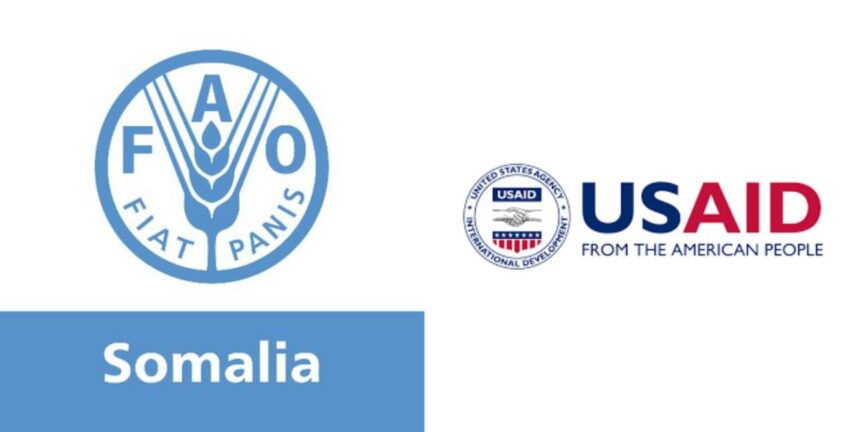Mogadishu, (SONNA) – The United Nations Food and Agriculture Organization (FAO) and the United States Agency for International Development (USAID) have launched a flagship project to support Somalia’s resilience and climate adaptation agenda. The project, “Reducing Communities’ Vulnerability to Drought and External Shocks (Recover)’, will be implemented by the Food and Agriculture Organization of the United Nations (FAO) in collaboration with the Federal Government of Somalia and Federal Member States in Hirshabelle, South West, and Jubaland, which hold great potential for productivity and to drive better food security in Somalia.
The new initiative intersects with existing humanitarian programming, offering vulnerable families a pathway from humanitarian dependency towards resilience. Partners will work together to improve farmers’ access to equipment, building skills and capacity in climate-smart production, supporting income diversification, and improving market access for around 54,000 rural people. The support comes at a crucial time following over two years of drought when Somalia requires investments in longer-term actions across the productive sectors that seek to address the underlying causes of these recurrent crises.
“What we’re currently witnessing in Somalia is a cycle of climate shocks that trigger increasingly dire and prolonged humanitarian crises. We need to reorient our efforts towards making communities self-sufficient and able to withstand these shocks, if we truly want to see Somalia exit this cycle of disasters,” said Etienne Peterschmitt, FAO’s Representative in Somalia.
“Projects like these, in partnership with USAID, shows there is an increasing commitment to working with the Somali Government to make longer term impacts, and reducing vulnerability of rural and food producing communities,” he said.
A pathway out of humanitarian dependency
The project’s layered and integrated approach will build on extensive USAID Bureau of Humanitarian Assistance funded programming. It supports the production of climate-smart local crops, fodder and fish products, increasing their marketability and contributes to diversifying incomes and access to finance while improving the nutrition of affected populations. With support from USAID, the new funding will boost current drought mitigation and adaptation activities and complement FAO’s ongoing resilience programmes in the region.
“In this project, we are working closely with the Somali Government to layer development investments over humanitarian ones to build vulnerable communities’ resilience to the next shock and reduce the need for humanitarian assistance in the future.” said Ted Lawrence Acting USAID Mission Director.




